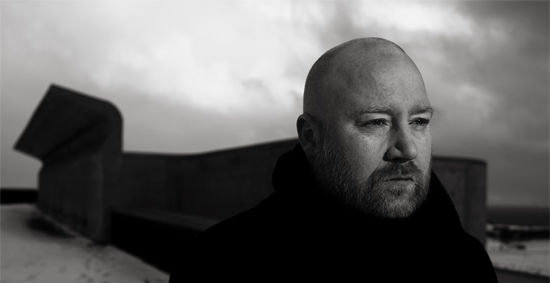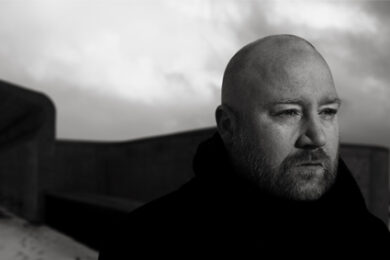I’ve never really written an obituary before. I’ve written streams of consciousness when people have died on social media, bits and pieces, but I’ve never intentionally sat down to write one. I don’t even know how to do it; they’ve always come across formulaic, the kind of "this is where they grew up, this is how they learned to do whatever it is they do, and these are the many ways in which they did that thing well" and that’s it, who’s the next hot ticket?
It was an absolute shock when I discovered Jóhann Jóhannsson had died. Not just because he had such an effortlessly wonderful vocation for a composer, not because he was starting to straddle that hidden line between the avant-garde and the mainstream of film music, but because he was just so young. To a lot of people 48 may seem like your dad’s age when he decides he’s finally ready for that MX-5, but in film composer terms he was a teenager, especially when you have John Williams and Ennio Morricone pushing towards 90. It’s just so fucking heartbreaking when you think of what he had ahead of him, but it’s still an immensely satisfying feeling when you look at how stunning his existing body of work is. Right now I’m listening to Arrival, a towering film score for one of the best films of recent times, and it’s sobering at how good he was at interpolating the patient and serene tones celebrated across his work from Engleborn onwards with the more traditionally melodic ideas of film scoring.
Jóhann’s career was of course somewhat defined by his relationship with director Denis Villeneuve, who he collaborated with on the films Prisoners, Sicario, and Arrival. Villeneuve’s filmmaking ideas and style were a perfect fit for Jóhann’s music and it’s regretful that the pair did not see eye to eye on Blade Runner 2049, and one wonders if they would have worked together on the director’s upcoming adaptation of Dune if Jóhann was still here. Just the glint of an idea of his music scoring the alien world of Arrakis is enough to curse whatever gods may live above this sphere of understanding.
In any case, one of his last projects was for Panos Cosmatos’ Mandy, which I am tasked with reviewing. Having not seen the film despite my best efforts, I now face imbibing Jóhann’s music while trying to approach it on its own terms. The film and soundtrack have been subject to a fair amount of hype, not just from the reviews of the film but also the status of the score, being symbolic of Jóhann’s career as his last film score to be released. It’s fair to say the composer did not hold back on Mandy, and what has been borne from that is a gloriously contemplative and emotional work that most would not object if it was judged to be his best score. Mandy feels like a journey past hell, into the dark places of the Earth that only Chinese mythology has names for, using the scything guitars of Sunn O)))’s Stephen O’Malley as a form of musical echolocation while Jóhann’s stormy synths wash around to form memories new and old. The descent into madness also helps the score structurally and narratively, and there’s a level of coherence and absolute tightness that is often a difficult act to pull off, especially when putting together something that is considered primarily to be a by-product.
The record ends with ‘Children of the New Dawn’, a laconically cool piece which certainly pays reference to those that have gone before and which is destined, like the score itself, to become a classic. Mandy is undoubtedly bleak in places but light bleeds through the cracks in everywhere but its vinyl cover, which might have a certain rock band stating it to be "none more black". As a standalone film score, it’s superb, as a summation of the career of Jóhann Gunnar Jóhannsson, it’s perhaps even more than that. For both of those reasons, it’s absolutely precious and essential.
NEW RELEASES
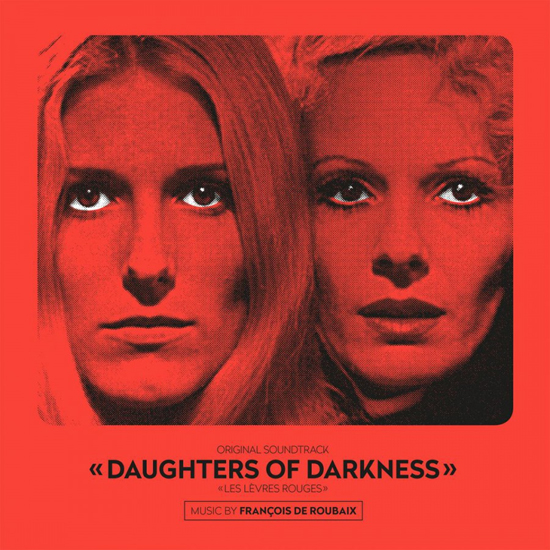
Out of nowhere comes DAUGHTERS OF DARKNESS (Music On Vinyl, out now), the hugely anticipated release of the soundtrack to Harry Kümel’s 1971 lesbian vampire picture. François de Roubaix’s music is wondrous, beautifully wild and decadent with a bleak core that’s hidden by its supreme beauty, but with a mischievous side that is happy to pop up and overwhelm you with sheer weirdness in its instrumentation and orchestration. But the constant is that melody that runs throughout the score, at once gorgeous and terrifying, both vivid and decaying. It’s also as cool as all get out, ready to have a knife fight with some of Lalo Schifrin’s earlier works, and that especially extends to the beautifully stark red cover. The pressing sounds wonderful too; there are inherent limitations with the source material but the clarity and separation of instruments is really impressive.
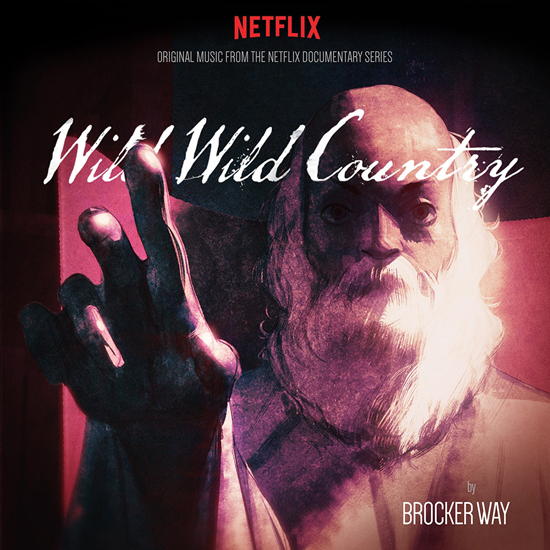
Brocker Way’s WILD WILD COUNTRY (Western Vinyl, out now) is a curious score as perhaps most documentary accompaniments are, usually aiming for something wandering and questioning as opposed to the specific story requirements of drama, hence the popularity of Philip Glass’ music for the Errol Morris films where the compositions can embrace subtlety, and often it’s better that they do. Wild Wild Country feels perhaps like a compromise between the two, reaching for something to not overwhelm the factual searching of the story while also trying to produce a dramatic narrative arc. The music itself is rather stripped down, with guitar, piano, and strings, along with some electronic elements, and this works just fine, with a quasi-Western feel. Just lose the Hornception next time, yeah?
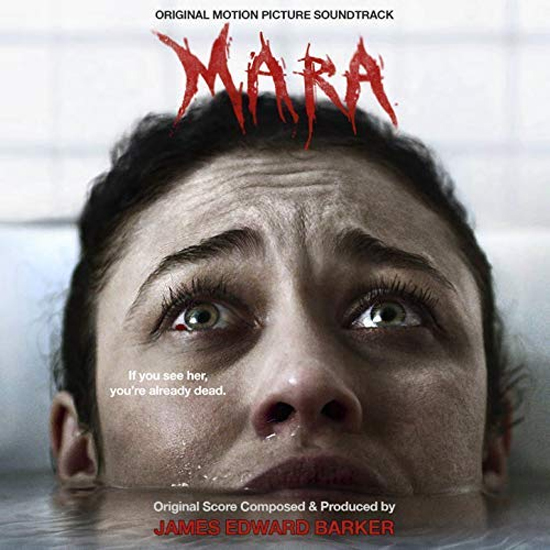
With the run-up to Halloween, yet more horror flicks are jumping out at us like disturbed cats and one of those is MARA (Filmtrax, out now), a supernatural flick about a criminal psychologist investigating people dying in their sleep and whether it may or may not be the work of the devil. Horror scores are always tough to look at isolated, especially when they’re the more fractured and experimental sub-avant garde type from the likes of Joseph Bishara, and Mara is not incredibly dissimilar in that regard, however there is a definite quality and effectiveness in James Edward Barker’s score that puts it away from others. As you might imagine, the album is punctuated by female choir and there’s a lovely if brief recurring piano melody, but the score (like the film) is obviously designed to give you the willies and it does so impressively, with some wonderful horrifically throaty growls and a number of layers of tortured, scratching strings and processed sounds that makes Mara certainly an uncomfortable listen.
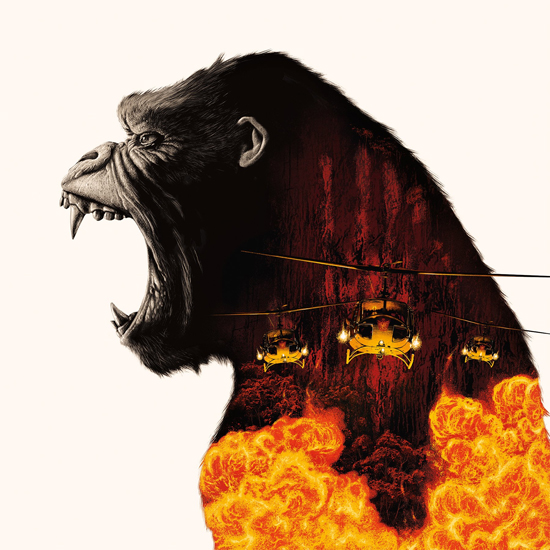
While not a horror movie, KONG: SKULL ISLAND (Waxwork, out now) is still an old-fashioned monster mash with a lot of Apocalypse Now thrown in, and its initial mode is like every other Kong movie: ominous ominous ominous. Henry Jackman is happy to throw in electric guitar (although not one bar of ‘The End’) to add to the traditional armament, but it all gets a lot more, well, obvious when they get to ‘The Island’ with portentous choir and some lovely brass figures and you know they’re about to say hello to the Big K, whose appearance is scored with low brass, albeit more Zimmer than Steiner. And it’s really here where Jackman hits the jackpot, much more with mood than themes, which are pretty forgettable. Waxwork’s mastering for vinyl is amazing here, with a beautiful sense of power and wonderful range, it really gives the score an extra edge. Pleasing sound, some monsterism.
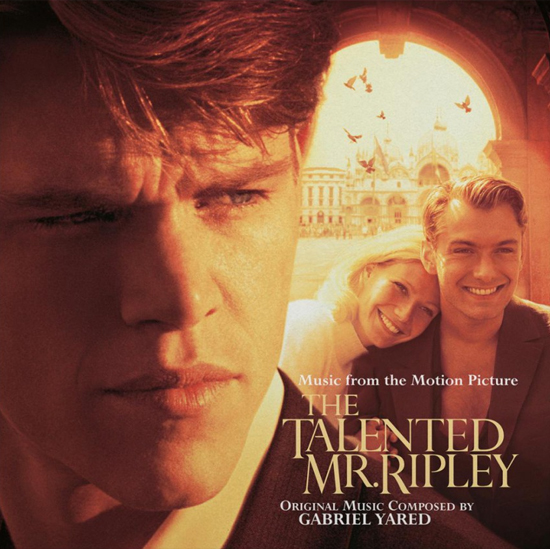
Music On Vinyl have hit fairly consistently with a number of interesting new and catalogue releases from big names and have shown how impressive they can be while perhaps being a little under the radar. DON’T WORRY, HE WON’T GET FAR ON FOOT (out now) is another example of the actual Danny Elfman, not just the Tim Burton’s Danny Elfman that everyone perhaps knows. The same stylistic hallmarks are still there, but here we have a fairly intimate and minimalistic score interpolated with jazzy outbursts that is a calming and pleasant listen without ever going towards knocking your socks off. On its heels is Gabriel Yared’s score to THE TALENTED MR. RIPLEY (out now), a mesmerisingly tense and gripping work that winds and winds like the lies of its protagonist. Yared’s music is impeccable and effortlessly flows from beautiful to sinister and back, excelling in simple transformation and modulation, and really the only complaint is that there isn’t more of it. The score is peppered with classical and jazz standards such as Sonny Rollins’ ‘Pent-Up House’, the latter of which is led by Guy Barker, along with some original tracks from Miles Davis and Charlie Parker, opening with songs from the actual film sung by Jude Law and Matt Damon. But Yared’s score is the real treasure here. Both sound fantastic on vinyl, it’s hardly surprising with Don’t Worry given how new the score is, but Ripley also sounds satisfyingly deep and clear.
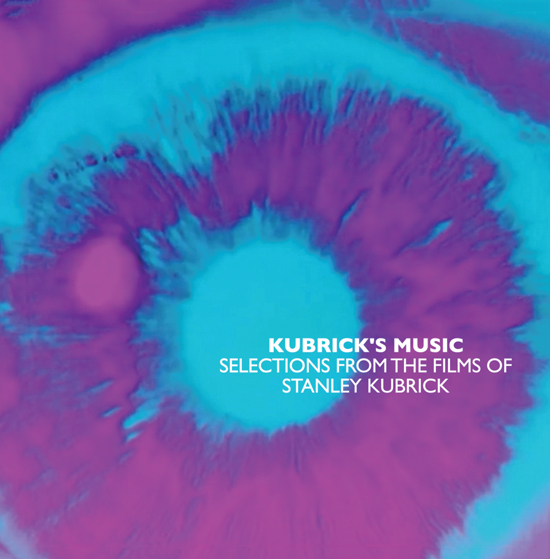
Speaking of treasure, KUBRICK’S MUSIC (Cherry Red, out September 28) is a box of wonderful delights, a four-disc boxset that explores the music of the films of Stanley Kubrick, including needledrop cues, actual soundtrack albums, inspiration pieces, and more. For example, the box includes the 1960 Decca album of Spartacus by Alex North along with the 1962 MGM LP program for Bob Harris and Nelson Riddle’s Lolita. We’re also privy to music by Toots Thielmans and John Coltrane from Dr Strangelove, along with Vera Lynn’s iconic ‘We’ll Meet Again’, classical excerpts from A Clockwork Orange together with ‘Singin’ In The Rain’, and even a recording of ‘The Battle On The Ice’ from Sergei Prokofiev’s score to Alexander Nevsky, apparently a huge influence on Kubrick’s musical tastes. The 2001: A Space Odyssey section includes two pieces used in the preview of the film but taken out for the final release (Mendelssohn’s Midsummer Night’s Dream and the Prelude from Ralph Vaughn Williams’ Sinfonia Antarctica), but it’s perhaps The Shining that gets the sweetest haul, with all the music from the ballroom sequence plus pieces that were an influence on Wendy Carlos and Rachel Elkind, with a welcome use of Bela Bartok. Organised chronologically and going from Paths of Glory to Eyes Wide Shut with well-written liner notes, it’s an absolutely essential set.

